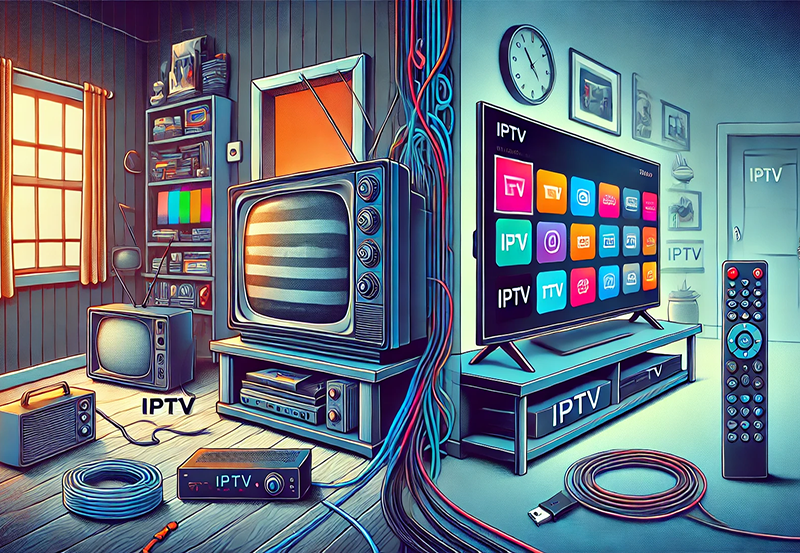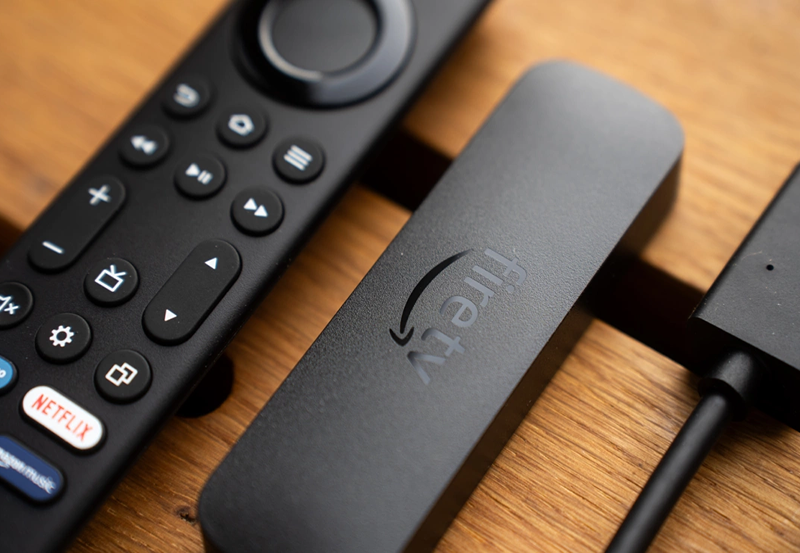As we move deeper into the digital age, traditional television is making way for more flexible viewing options like IPTV. Internet Protocol Television (IPTV) stands out due to its affordability and the vast array of best IPTV channels it offers. But one thing that many users find challenging is recording IPTV content on Linux. This tutorial is here to make that process simpler and help you discover superior IPTV viewing with control over your media.
In Linux, there are several methods to record IPTV, each with its own set of tools and techniques. Whether you’re a Linux newcomer or a seasoned user, this guide will walk you through everything you need to know about capturing IPTV streams without a hitch. Let’s dive into the world of seamless IPTV recording on Linux.
Buy 1 Year IPTV Subscription and Enjoy Unlimited Content
Understanding IPTV and Its Appeal
Before jumping into the technical aspects, it’s essential to grasp what makes IPTV so appealing. Unlike conventional TV, IPTV streams media through internet connections, providing viewers with flexibility and a wider selection of channels.
Pro Tip:
Stream live matches in HD with IPTV for sports streaming and never miss a moment of the action.
The Advantages of IPTV
IPTV offers numerous advantages compared to traditional cable or satellite television services. Here are a few highlights:
- Variety of Channels: With IPTV, you can access a broader range of channels, including international ones, expanding your viewing options tremendously.
- On-Demand Content: IPTV services often include on-demand libraries, letting you watch shows and movies whenever you choose.
- Cost-Effective: Affordable IPTV packages are available, providing a budget-friendly alternative to cable subscriptions.
Why Choose Linux for Recording IPTV?
Linux is a robust platform with rich tools for media handling. Its open-source nature means you have access to a wealth of software without worrying about exorbitant costs. Additionally, its strong community support can be incredibly helpful.
Linux’s reliability and flexibility make it an excellent choice for recording IPTV. With various software options, you have the freedom to customize the IPTV watching experience to suit your needs.
Preparing Your Linux System for IPTV Recording
Before you begin recording IPTV, certain preparations are necessary to ensure a smooth experience. This involves setting up your system and software appropriately.
System Requirements
Having the right system configuration is crucial for IPTV recording. Ensure your device meets these minimum requirements:
- Processor: A dual-core processor or better is recommended.
- RAM: At least 4GB for smooth performance.
- Storage: Sufficient space to store recordings (preferably 500GB or more).
- Internet Connection: A stable broadband connection.
Essential Software Tools
Several software tools are needed for recording IPTV on Linux. Below are popular programs that offer reliable functionality:
- VLC Media Player: Known for its versatility, VLC can stream and record IPTV content with ease.
- Kodi: This powerful media center can be configured to record and manage IPTV streams.
Step-by-Step: Recording IPTV with VLC
VLC is a widely-used media player in the Linux community thanks to its extensive capabilities. Let’s look at how VLC can be used to record IPTV streams.
Installing VLC on Linux
Installing VLC is straightforward. Use the terminal and run the following command:
sudo apt install vlcThis will install the VLC Media Player. You can verify the installation by opening VLC from your applications menu.
Configuring VLC for IPTV
Once installed, you need to configure VLC to record IPTV streams. Follow these steps:
- Open VLC and navigate to the “Media” tab.
- Select “Open Network Stream” and enter the URL for your IPTV stream.
- Click “Play” to start streaming. Ensure the stream runs smoothly before proceeding to record.
Recording the Stream
Now that your stream is playing in VLC, here’s how to record it:
- Go to “View” and select “Advanced Controls” to toggle additional control buttons.
- You will see a “Record” button appear at the bottom. Press it to start recording the stream.
- To stop recording, press the “Record” button again. The recording will be saved to your default video directory.
Exploring Other Recording Methods: Kodi
While VLC is popular, Kodi offers a full-fledged media center experience with robust IPTV recording features. Let’s explore its capabilities.
Setting Up Kodi for IPTV Recording
Before recording, you need to install and set up Kodi for IPTV. Here’s how:
sudo apt install kodiAfter installation, launch Kodi and go to “Add-ons” to install necessary IPTV plugins from the official Kodi repository or third-party sources.
Configuring Plugins
Once the add-ons are set, follow these steps to configure them for recording:
- Navigate to “Settings” within your chosen IPTV plugin.
- Ensure the ‘Enable Recording’ option is selected.
- Set your preferred recording directory under ‘Recording Options’.
Recording Sessions with Kodi
Recording IPTV streams in Kodi requires a few clicks:
- Go to the IPTV section and start the stream.
- Select the ‘Record’ option from plugin settings or context menu.
- Your recording will start, and you can monitor its progress in the ‘Recordings’ tab within Kodi.
Handling Technical Issues and Troubleshooting
Technical obstacles may arise during the IPTV recording process. This section covers common issues and their solutions.
Common Problems and Solutions
Users may encounter several issues, including:
- Stream Buffers or Lags: Check your internet connection and reduce playback quality if needed.
- Recording Not Saving: Verify that the directory path exists and has appropriate permissions.
- Audio Sync Issues: Adjust audio delay settings within your media player.
Seeking Community Help
Linux and IPTV communities are excellent resources for troubleshooting. Forums like Stack Exchange and dedicated subreddits are invaluable for problem-solving and technical discussions.
Unlocking the Best IPTV Experience on Linux
Recording IPTV on Linux can significantly enhance your viewing freedom, allowing you to watch content on your terms. With the right setup and tools, from affordable IPTV packages to the best IPTV channels, your Linux system can become a powerhouse for recording and playback.
In this tutorial, we’ve explored reliable ways to capture IPTV streams, diving into specifics like VLC and Kodi setups, managing technical hiccups, and more. Armed with this knowledge, you’re ready to go beyond simply watching IPTV to truly mastering it.
Frequently Asked Questions

What is IPTV, and how does it differ from traditional TV?
IPTV delivers television content through IP networks rather than traditional formats such as cable or satellite. This offers more flexibility and a wider range of programs, often including international content and on-demand options.
Can I record IPTV on platforms other than Linux?
Yes, IPTV can be recorded on various platforms, including Windows and Android. However, Linux offers unique advantages like flexibility and access to open-source recording tools.
Which Linux distribution is best for IPTV recording?
Any recent Linux distribution should suffice, but popular ones like Ubuntu or Mint are recommended for their ease of use and community support.
Is it legal to record IPTV streams?
Legalities depend on your location and the IPTV service’s terms. Always ensure you have permission to record content and are compliant with local laws.
How can I improve the quality of recorded IPTV content?
Ensure you’re using a reliable, high-speed internet connection, and configure your software to record at higher quality settings. Additionally, choose channels with good broadcast quality.
Does recording IPTV consume a lot of disk space?
Yes, recording IPTV can consume significant disk space, especially at higher quality. Regularly manage and delete unnecessary recordings to free up space.
What options exist if VLC or Kodi encounter issues?
There are alternative applications like MPlayer or FFmpeg that might serve as backup solutions for recording IPTV if VLC or Kodi presents challenges.
The Ultimate Guide to VPN and FireStick: Privacy at Your Fingertips





